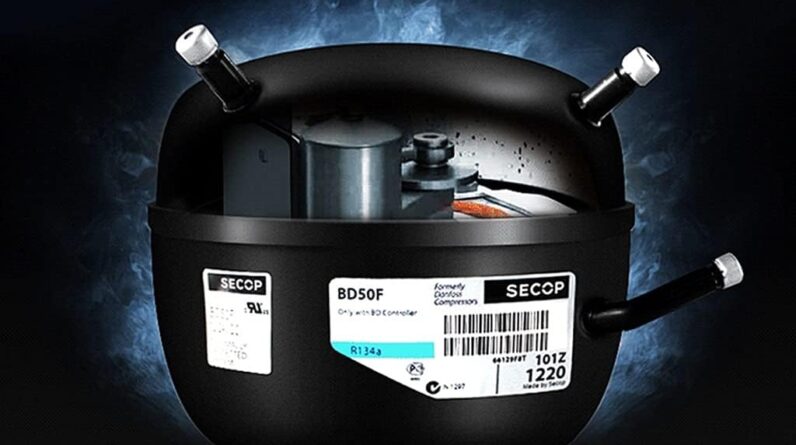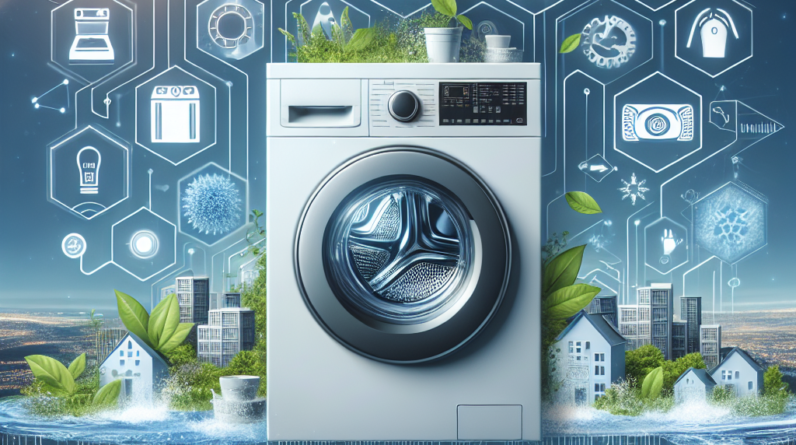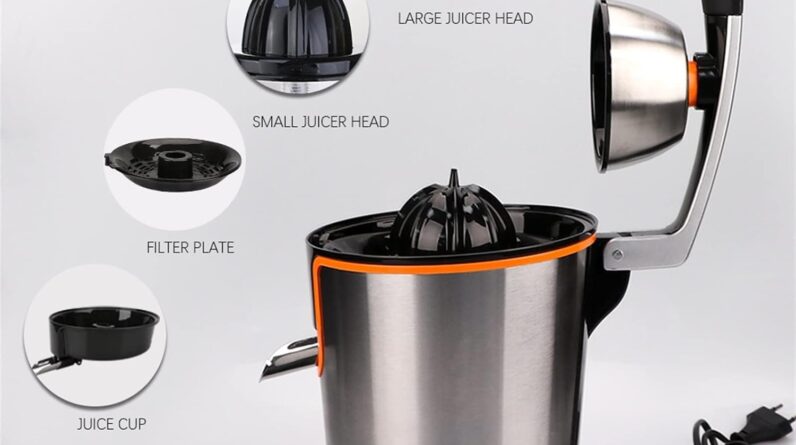
Is your dishwasher not performing as efficiently as it used to? Perhaps you’ve noticed some unusual sounds or foul odors emanating from it. These are all common signs that your dishwasher may be in need of maintenance. In this article, we will explore some of the key indicators that can help you identify when it’s time to give your dishwasher some TLC. From clogged drains to broken seals, understanding these signs will not only improve your dishwasher’s performance but also prolong its lifespan. So, let’s jump right in and learn how to keep your dishwasher running smoothly!
1. Leaking
Visible water on the floor
If you notice water on the floor around your dishwasher after a cycle, it’s a clear sign that your dishwasher is leaking. This can be caused by a variety of issues, such as a faulty door seal, a cracked or loose hose, or a worn-out gasket. It’s important to address this issue promptly, as a leaking dishwasher can cause water damage to your kitchen floor and cabinets.
Water stains on surrounding cabinets
In addition to visible water on the floor, water stains on the surrounding cabinets are also a common sign of a leaking dishwasher. These stains are usually caused by water seeping through cracks or gaps in the dishwasher door or other areas of the appliance. If you notice water stains on your cabinets, it’s crucial to investigate the source of the leak to prevent further damage.
Pooling of water in the dishwasher
Another indicator of a leaking dishwasher is the pooling of water inside the appliance itself. If you open your dishwasher after a cycle and find a significant amount of water sitting at the bottom, it’s a clear indication that there is a problem with the drainage system. This can be caused by a clogged filter, a malfunctioning pump, or improper installation. It’s important to address this issue promptly to avoid further damage to your dishwasher and ensure proper functioning.
2. Loud Noise
Grinding or rattling sounds during operation
If your dishwasher starts producing loud grinding or rattling sounds during its operation, it’s a sign that there may be a mechanical issue within the appliance. This can be caused by a worn-out motor, loose parts, or debris stuck in the pump or spray arm. Not only can these noises be annoying, but they can also indicate an underlying problem that needs attention to prevent further damage to your dishwasher.
Unusual vibration or shaking
In addition to loud noises, if you notice your dishwasher vibrating or shaking more than usual during its cycle, it’s a sign that something is not right. This can be caused by an unbalanced load, a faulty motor, or damaged components. Excessive vibration or shaking can lead to further damage to your dishwasher and affect its overall performance. If you experience this issue, it’s important to address it promptly to avoid any potential safety hazards and ensure the longevity of your appliance.
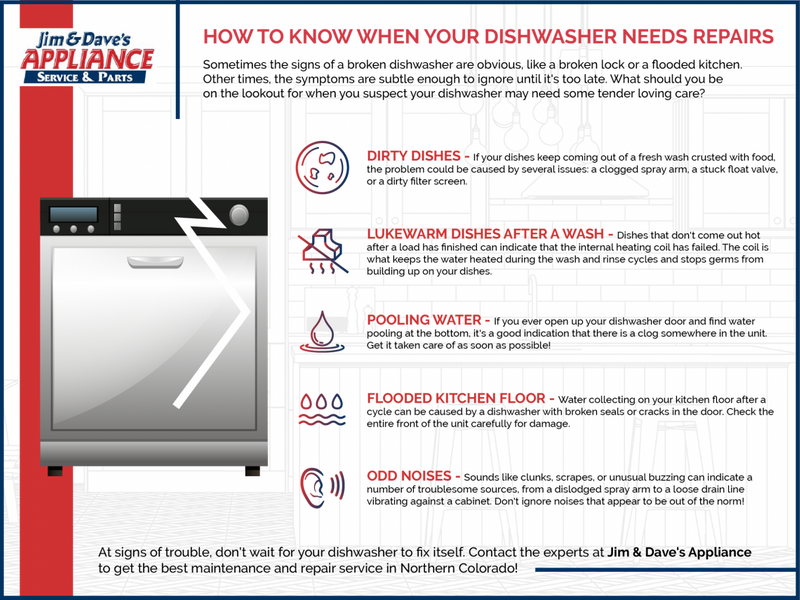
This image is property of static.mywebsites360.com.
3. Foul Odor
Persistent unpleasant smell after each cycle
If your dishwasher emits a persistent foul odor after every cycle, it’s a sign that there may be a buildup of food particles, grease, or residue within the appliance. This can occur due to improper cleaning or clogged filters. The trapped food particles can start to decompose over time, resulting in an unpleasant smell. Regular cleaning and maintenance can help eliminate this odor and ensure a fresh-smelling dishwasher after each use.
Mold or mildew growth inside the dishwasher
Another indication of a dishwasher in need of maintenance is the presence of mold or mildew growth inside the appliance. This can occur due to high humidity levels, improper ventilation, or leaving wet dishes in the dishwasher for too long. Mold and mildew not only produce an unpleasant smell but can also pose health risks. Proper cleaning, drying, and regular maintenance can prevent the growth of mold and mildew and keep your dishwasher odor-free.
4. Inefficient Cleaning
Leftover food particles on dishes
If you consistently find leftover food particles stuck on your dishes after running a cycle, it’s a clear sign that your dishwasher is not cleaning effectively. This can be caused by clogged spray arms, a malfunctioning pump, or a blocked filter preventing proper water circulation. Inefficient cleaning not only affects the cleanliness of your dishes but can also lead to bacterial growth and an unhygienic environment. Regular maintenance and cleaning can help resolve this issue and ensure spotless dishes every time.
Cloudy or spotty glassware
Another common sign of dishwasher maintenance needed is the presence of cloudy or spotty glassware after a cycle. This can be caused by hard water mineral deposits, improper detergent usage, or a damaged water softener. Cloudy or spotty glassware not only looks unappealing but can also make your dishes appear unclean. Proper maintenance, including descaling the dishwasher and using the right detergent, can help eliminate this issue and restore the sparkle to your glassware.
Inconsistent cleaning performance
If you notice that your dishwasher’s cleaning performance has become inconsistent, with some dishes coming out clean while others remain dirty, it’s a sign that there may be an issue with the spray arm, filter, or water circulation. Inconsistent cleaning can be frustrating, as it defeats the purpose of using a dishwasher for convenience and efficiency. By addressing the maintenance needs of your dishwasher, you can ensure consistent and reliable cleaning performance.
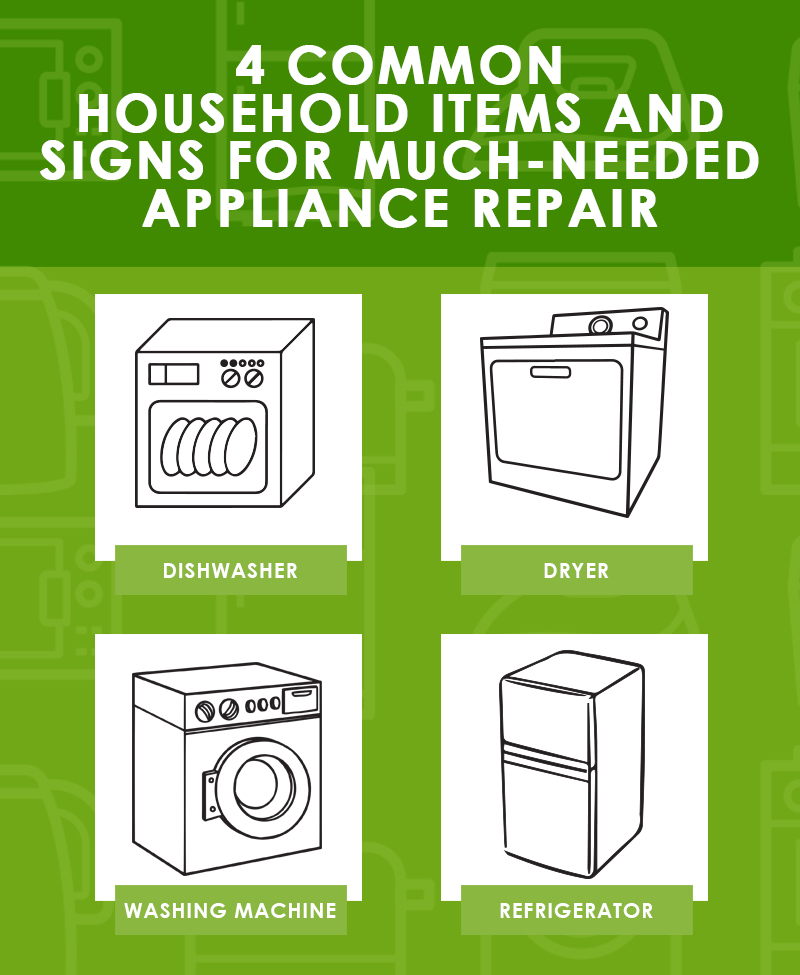
This image is property of myfurnace.com.
5. Long Cycle Duration
Significantly longer cycles than usual
If you find that your dishwasher’s cycles are taking significantly longer than usual, it’s a sign that there may be an underlying maintenance issue. This can be caused by a clogged filter, a malfunctioning heating element, or insufficient water supply. Prolonged cycle durations not only inconvenience you but can also lead to higher energy consumption and increased wear and tear on the appliance. Proper maintenance can help optimize cycle durations and ensure efficient operation.
Repeatedly pausing and restarting during a cycle
Another sign that your dishwasher needs maintenance is when it repeatedly pauses and restarts during a cycle. This can be caused by a faulty sensor, a malfunctioning control board, or an issue with the water supply. Constant interruptions in the cycle can disrupt the cleaning process and lead to unsatisfactory results. Timely maintenance and troubleshooting can help identify the cause of these interruptions and restore the smooth operation of your dishwasher.
6. Clogged Drainage
Water not draining properly from the dishwasher
If you observe that water is not draining properly from your dishwasher after a cycle, it’s a clear indication of a clogged drainage system. This can be caused by a clogged filter or drain hose, a malfunctioning drain pump, or congealed food particles blocking the drain. A clogged drainage system can result in standing water inside the appliance, unpleasant odors, and potential water damage. Regular maintenance and cleaning of the drainage components can prevent clogs and ensure proper water drainage.
Backed-up water in the sink while running the dishwasher
Another common sign of a clogged drainage system in your dishwasher is when water starts to back up in the sink while the appliance is running. This can occur due to a blockage in the dishwasher’s drain hose or a damaged check valve. When the dishwasher tries to drain, the water finds an alternative path of least resistance, leading to backup in the sink. Prompt maintenance and unclogging of the drainage system can help prevent this inconvenience and ensure the smooth operation of your dishwasher.
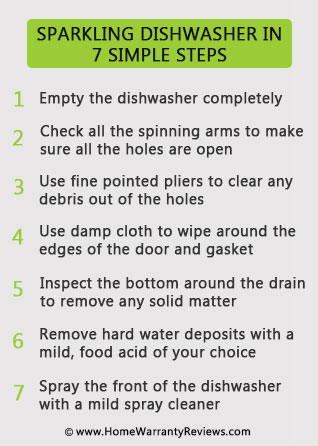
This image is property of www.homewarrantyreviews.com.
7. Door Problems
Door not latching or closing properly
If you have difficulty latching or closing the door of your dishwasher, it’s an indication that there may be an issue with the door latch or hinge. This can be caused by a misaligned door, a worn-out latch mechanism, or loose screws. A door that doesn’t close or latch properly can affect the dishwasher’s performance and efficiency. It can lead to water leaks, inefficient cleaning, and potential damage to the appliance. Timely maintenance and adjustment of the door mechanism can resolve this issue and ensure a secure and tight seal.
Dishwasher not starting when the door is closed
Another sign that your dishwasher needs maintenance is when it fails to start even when the door is closed. This can be caused by a faulty door switch, a malfunctioning control panel, or a broken latch. If the door switch doesn’t detect that the door is properly closed, it will prevent the dishwasher from starting. Prompt maintenance and replacement of faulty components can resolve this issue and restore the functionality of your dishwasher.
8. Excessive Heat or Steam
Dishwasher feels extremely hot after a cycle
If you notice that your dishwasher feels excessively hot to the touch after a cycle, it’s a sign that there may be an issue with the heating element or thermostat. A malfunctioning heating element or thermostat can cause the dishwasher to overheat, posing a safety hazard and potentially damaging the appliance. It’s important to address this issue promptly to prevent accidents and ensure the proper functioning of your dishwasher.
Excessive steam escaping from the dishwasher
In addition to excessive heat, if you observe a significant amount of steam escaping from your dishwasher during its operation, it’s an indication of a problem with the vent or seal. A damaged or faulty vent or seal can allow steam to escape, leading to high humidity levels in your kitchen and potential damage to surrounding cabinets. Timely maintenance and replacement of damaged components can help prevent excessive steam and maintain a comfortable and safe kitchen environment.
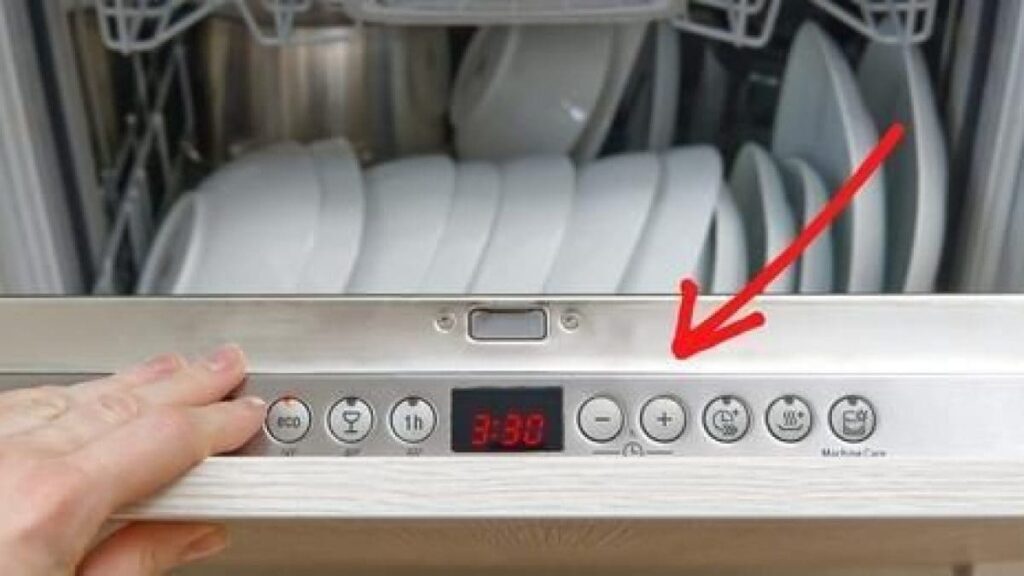
This image is property of staticcookist.akamaized.net.
9. Error Messages or Fault Codes
Display showing error codes or warning messages
If your dishwasher’s display panel shows error codes or warning messages, it’s a clear sign that there is a problem with the appliance. These error codes and messages are designed to help you identify and troubleshoot specific issues. Common error codes may indicate problems with the water supply, drainage system, or electronic components. It’s important to refer to your dishwasher’s manual or consult a professional to decipher these codes and take appropriate maintenance measures.
Dishwasher stopping mid-cycle with an error
Another indication of a dishwasher in need of maintenance is when it stops mid-cycle and displays an error message. This can occur due to a variety of issues, such as a malfunctioning motor, a blocked pump, or an electrical problem. When the dishwasher encounters an error, it automatically stops to prevent further damage. Addressing the maintenance needs of your dishwasher can help resolve these error messages and ensure uninterrupted cycles.
10. Wear and Tear
Rust or corrosion on interior components
If you notice signs of rust or corrosion on the interior components of your dishwasher, it’s a clear indication of wear and tear. Rust can occur due to prolonged exposure to moisture and can affect the structural integrity and performance of the appliance. Corrosion can also damage the wiring and electronic components. Regular maintenance and cleaning can help prevent rust and corrosion, ensuring the longevity of your dishwasher.
Cracks or damage to the dishwasher racks
Another sign of wear and tear in your dishwasher is the presence of cracks or damage to the dishwasher racks. Over time, the constant loading and unloading of dishes can cause the racks to weaken and develop cracks or breakages. Damaged racks not only affect the capacity and functionality of your dishwasher but can also pose a safety risk. Timely maintenance and replacement of damaged racks can help maintain the efficiency and safety of your dishwasher.
In conclusion, it’s important to be aware of the various signs that indicate your dishwasher needs maintenance. From leaking and loud noises to foul odors and inefficient cleaning, these signs can point to underlying issues that require attention. By promptly addressing these maintenance needs, you can ensure the optimal performance, efficiency, and longevity of your dishwasher. Regular cleaning, occasional troubleshooting, and professional maintenance can help keep your dishwasher in top shape and make your dishwashing experience hassle-free.
This image is property of img.choice.com.au.



